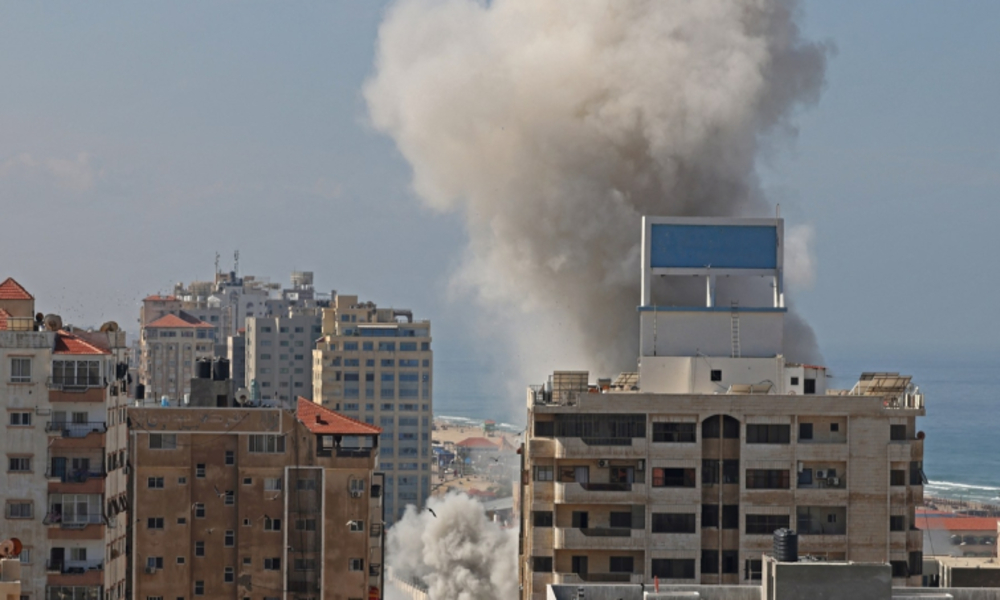Business
Oil Prices Surge Amid Middle East Tensions: The Impact Of Israel-Gaza Conflict

(CTN NEWS) – Oil prices have experienced a sharp increase recently, driven by growing concerns over the Israel-Gaza conflict and its potential to disrupt oil output in the Middle East.
This escalation in geopolitical tensions has sent shockwaves through global oil markets, with the international benchmark Brent crude rising by $2.50 a barrel to reach $87.05.
In addition to impacting global supply, this situation has raised questions about the stability of the region and the potential repercussions for the world’s energy markets.
Middle East: A Critical Hub for Oil Supply
Although Israel and the Palestinian territories are not major oil producers, the Middle East plays a pivotal role in the global oil landscape, accounting for nearly one-third of the world’s oil supply.
The recent hostilities between Israel and Gaza have put this crucial region in the spotlight.
Hamas’s involvement and its alleged backing from Iran, one of the world’s largest oil producers, have further exacerbated concerns. Iran, while denying direct involvement, expressed support for the attacks, raising alarm bells among energy analysts and market observers.
Potential for Wider Conflagration
Saul Kavonic, an energy analyst, pointed out that the spike in oil prices stems from the fear of a broader conflict that could involve major oil-producing nations such as Iran and Saudi Arabia.
This apprehension is not unfounded, as a significant disruption in oil production from these countries would have a substantial impact on global oil markets.
Caroline Bain, chief commodities economist at Capital Economics, highlighted that Iran had been steadily increasing its oil production throughout the year despite U.S. sanctions.
This rise in Iranian production, coupled with the ongoing geopolitical tensions, has created an environment where demand for oil could outstrip supply, potentially leading to higher prices.
The Strait of Hormuz: A Critical Chokepoint
One critical factor contributing to market anxiety is the Strait of Hormuz, a vital oil trading route responsible for the transportation of about one-fifth of global oil supply.
Disruption in this crucial passage would have severe consequences for the economies of Gulf region countries that heavily rely on oil and gas production.
Investor Reaction and Economic Uncertainty
The uncertainty surrounding the Israel-Gaza conflict’s future development has led investors to seek safe-haven assets such as U.S. Treasury bonds and the dollar.
These investments are traditionally favored during times of crisis. James Cheo from HSBC bank emphasized that economic data and geopolitical uncertainty would influence market sentiment in the coming days.
Israel’s Response
In an effort to stabilize its economy and currency, Israel’s central bank announced plans to sell up to $30 billion of foreign currency. The Israeli shekel has faced significant depreciation amidst the ongoing tensions.
Historical Parallels: The Russia-Ukraine Crisis
The recent surge in oil prices echoes the dynamics observed following Russia’s invasion of Ukraine in February 2022. Oil prices reached over $120 a barrel in June of that year before settling at around $70 a barrel in May 2023.
The gradual price increase since then has prompted major oil-producing nations like Saudi Arabia to implement production cuts to support market stability.
OPEC+, a coalition of oil-producing countries that accounts for 40% of the world’s crude oil, plays a pivotal role in influencing oil prices.
Conclusion
The Israel-Gaza conflict has sent shockwaves through global oil markets, triggering concerns about supply disruptions and market stability.
As the situation unfolds, the world will closely monitor developments in the Middle East, the potential involvement of major oil-producing nations, and their impact on energy prices.
The delicate balance in the oil market remains vulnerable to geopolitical tensions, underlining the importance of finding peaceful resolutions to conflicts in oil-rich regions.
RELATED CTN NEWS:
California Governor Gavin Newsom Vetoes Bill To Include Caste In Anti-Discrimination Laws
U.S. President Joe Biden Offers Support To Israel After Hamas Attack
Pakistan To Receive Next Tranche Of $3 Billion IMF Loan Despite Challenges And Deadline Delays






























